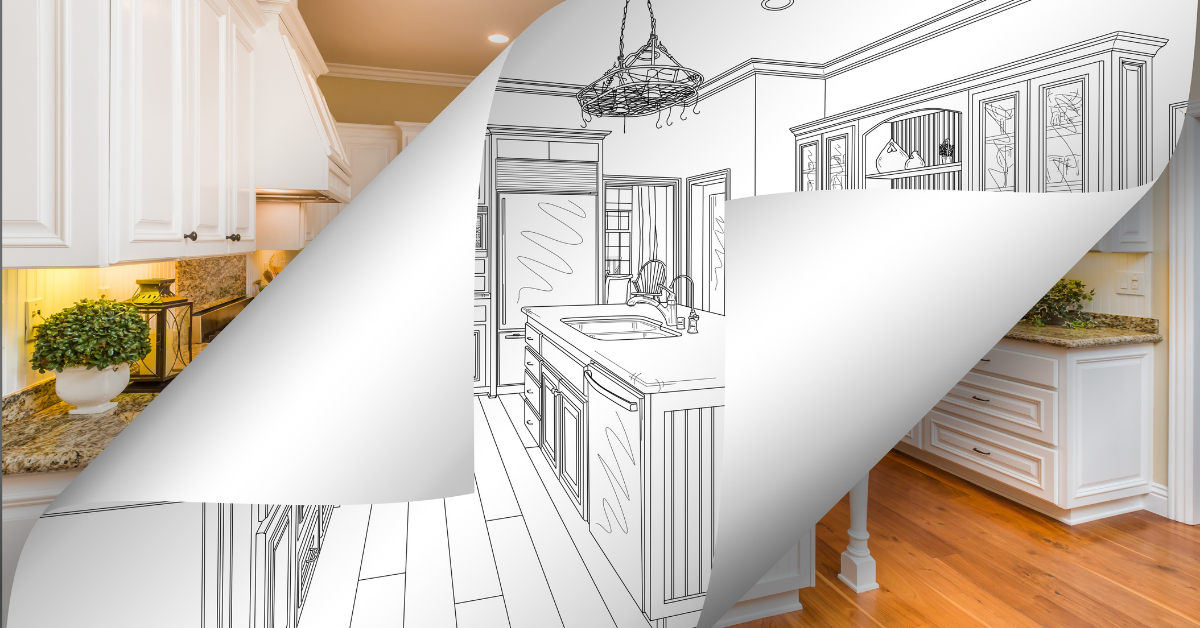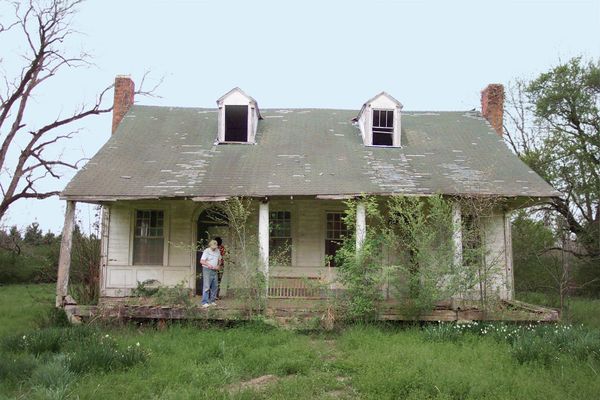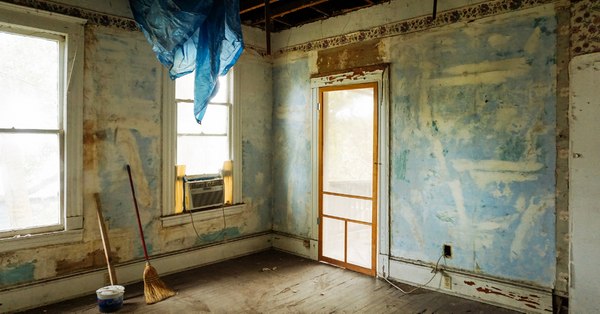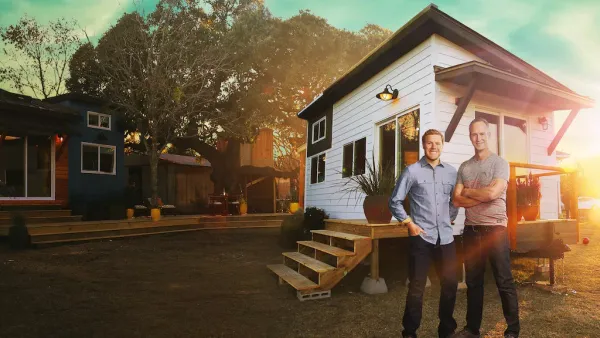Many newcomers in the real estate investing world are torn between flipping houses or buying and holding rental properties. Although both are good ways to make money, there are several things you need to consider before deciding which way to invest your money.
It is important to learn how to flip houses before investing in this type of project. The main challenge is to know how the market works. This includes how much home prices are rising and how long they are staying there. Of course, you also need to know what renovations are worth making for a successful flip.
If you want to get started, one of the best things is before deciding which way is better for you to look at both options. Think about all the pros and cons that come with them. This article will help you understand the differences between flipping houses and renting properties to help you make a better decision.
The Difference between Flipping Houses and Renting Properties
The difference between flipping houses and rental properties mainly lies in the fact that one is an active income while another is passive income.
Flipping Houses Is an Active Income
When you venture into house flipping, you’ll be earning active income. By flipping houses, you’ll be engaging in business on a day-to-day basis. You’re always looking for a property to flip, purchase, get insurance, and manage the project, among other things. It is a challenging job, which involves a lot of hard work and dedication. If you stop working, the money will stop flowing in.
Flipping provides a quick turnaround on investments. It also helps investors avoid the ongoing hassles of finding tenants they would typically encounter with rental properties. Once work on the home is complete, the investor can sell the home for an increased price and move onto their next flipping project.
Rental Properties Is a Passive Income
On the other hand, investing in rental properties means that you’ll earn passive income. You’ll be involved in the project, but it won’t consume your life so much. Instead of primarily focusing on a single property and worrying about repairs, improvements, and cash flow problems, you will be focused on the management of your rental income properties. While there may be some maintenance and repairs involved, they will likely be minor and infrequent.
If you have too many rental properties to manage yourself, you can also hire a management company to take care of the property and do everything for you. You’ll just need to approve or disapprove the rentals, check on how much money your properties make each month, receive payments, and manage bills.
Pros and Cons of Flipping Houses
While flipping houses, there are some things you must know to be successful. Like any other business, flipping houses has its benefits and drawbacks.
Pros:
1. It is a profitable business. Although it can be challenging, especially initially, you will encounter financial success if you’re dedicated to your work. The earnings investors make from selling their flipped houses guarantees a faster return on investment. This means you can get your money back sooner than in other businesses.
2. House flipping is less risky than many other businesses. It doesn’t have many overhead costs, like hiring employees and purchasing expensive real estate equipment. There’s always a way to save money on remodeling supplies and other things. Your only expenses would be mortgage payments, utilities, insurance, remodeling supplies, house upgrades, and repairs. It is a business with low risk for the returns you’ll get.
3. No property management. Another big pro is that you won’t have to deal with property management. You won’t have to worry about finding renters and dealing with their problems, such as fixing broken appliances or doing repairs. Your only concern would be finding a home to flip and buyers to purchase it afterwards. Once everything is done, you’ll get a new income source without having to do anything else.
Cons:
1. Fixed price on a property. There’s no way you can predict the value of houses in the future, especially when you’re working with foreclosed homes or fixer-uppers. Buying these properties means that you need to pay a specific price for them and then sell them at any time. You can lose money if you’re unable to sell your house during a good market period. There are also chances of buying cheap houses with a lot of issues that need significantly more repairs than anticipated. This can easily drive up the costs to flip.
2. It is a risky business. No matter how good you are, there’s always a risk that something will go wrong with the purchase or while renovating the property. Different issues may occur during buying and selling houses, such as water damage, fire, or other unexpected circumstances. You’ll have to take risks to gain something.
3. Tax Issues. You’ll also need to understand the tax implications of flipping houses, as they can affect your flipping profits. There are things like depreciation and repairs that you’ll take into account for taxes. Before taking on a project, consult a tax professional for more information about house flipping and its taxation.
Pros and Cons of Rental Properties
Investing in rental properties is an excellent investment with several benefits. However, don’t forget that it’s a business with drawbacks like any other.
Pros:
1. You’ll get a passive income. Passive income is good because you can earn money without having to put in active work for it. Rental properties provide ongoing income without requiring much work on your part. It means that you can earn easy money even if you’re not there working for it. Once you have tenants in place and rent coming in, you can sit back, relax, and enjoy that extra stream of income.
2. Property value appreciation. With time, your rental property could increase in value and have a higher appreciation. There’s a possibility for appreciation that will lead to more money if you decide to sell it in the future. If you’re tired of renting the property or want to get better returns on your investment, you can earn money by selling it at a higher price than what you originally bought it for. Such properties can be good candidates for the BRRR method of real estate investing.
3. Tax benefits. You can deduct a lot of expenses, such as mortgage interest, property taxes, and insurance. The benefits from tax deductions allow you to have more profits for yourself. If you decide to sell after owning the property for more than a year, then you can include the capital gain in your income.
Cons:
1. You have to deal with tenants. One of the biggest downsides of renting out properties is that you’ll have to deal with problems if there’s a tenant in the house. This includes maintenance and repairs. If something goes wrong, then it’s up to you to fix it so you can avoid liabilities from tenants and fines for not maintaining the property.
2. You have to manage the rentals. Aside from dealing with tenants, you’ll also have to manage your rental properties efficiently for them to give you good returns on investment. You need to look for potential renters, collect rents, and keep track of expenses to gain higher profits than what you’re paying out.
3. Vacancy risks. Finding quality tenants for your properties could take a lot of time. You won’t be earning money while waiting for potential tenants to come by. There will also be some potential risks involved, such as a tenant not paying rent or a tenant breaking the rules set by your lease agreement.
Should You Flip or Hold Rental Properties?
If you don’t mind spending the time working on your property and you want to make a quick and decent income out of it, then consider flipping houses. However, if you want something that will give you a continuous passive income and appreciation over time, rental properties.
You can also choose to do both flipping and rental properties. If you flip your rental property, you can rent it out at a higher price and sell it at a higher price later on. The choice is yours on what kind of real estate investment to make. But do your research first to understand how to flip a house and manage a rental property.
Whatever you choose, SimpleShowing will be here to hold your hand every step of the way. Talk to us, and our experts will be at your service to help you buy properties to flip or rent out. Don’t forget to ask how you can save on your new investment property with our buyer refund incentive.
The Balanced Real Estate Portfolio
For the modern real estate investor, diversifying one's approach to property investment can offer a balanced portfolio. While owning rental property typically provides a steady stream of monthly rental income, it's important to remember that not all rental properties are created equal. Some might yield substantial cash flow month after month, while others could present unforeseen maintenance challenges or even prolonged vacancies. On the flip side, those who opt to flip properties might find a more immediate and potentially larger chunk of investment income in a shorter time frame. However, this strategy also comes with its own set of risks and may require a substantial upfront capital.
Another pivotal consideration for investors is the role of a property management company. For those who prioritize hands-off investment strategies, such companies can manage the nitty-gritty of owning rental property, from finding tenants to handling repairs. This service can be especially beneficial for those who have a diverse mix of real estate investments, balancing between flipped homes and rentals.
Conclusion
Both flipping houses and renting properties can provide a significant return on investment for real estate investors. The optimal choice depends largely on the individual investor's investment strategy, market conditions, risk tolerance, and time commitment. Flipping properties offers a potentially quicker return and can allow for substantial profits in a shorter time frame, but it requires more hands-on work and is influenced by the current market value of homes. On the other hand, rental property owners enjoy a consistent monthly income, which can serve as a safety net during uncertain market conditions.
A property manager can be a valuable asset for rental property owners, taking the burden of tenant management off their shoulders. However, it's crucial to factor in the cost of property management when calculating potential profits. When considering flipping vs renting, also remember the tax implications. Rental income is generally taxed as ordinary income, whereas profits from flipping houses are subject to capital gains tax.
Ultimately, whether one chooses flipping houses or renting properties, both approaches can yield substantial financial rewards. Real estate investors should evaluate their financial goals, market conditions, and personal circumstances before making a decision. Keep in mind that a diverse investment strategy, incorporating both flipping and renting, can also offer a balance of short-term profits and long-term steady income.






